Dan Martin’s Tour de France comes into focus as race enters Pyrenees
Irishman enters favoured terrain well placed overall
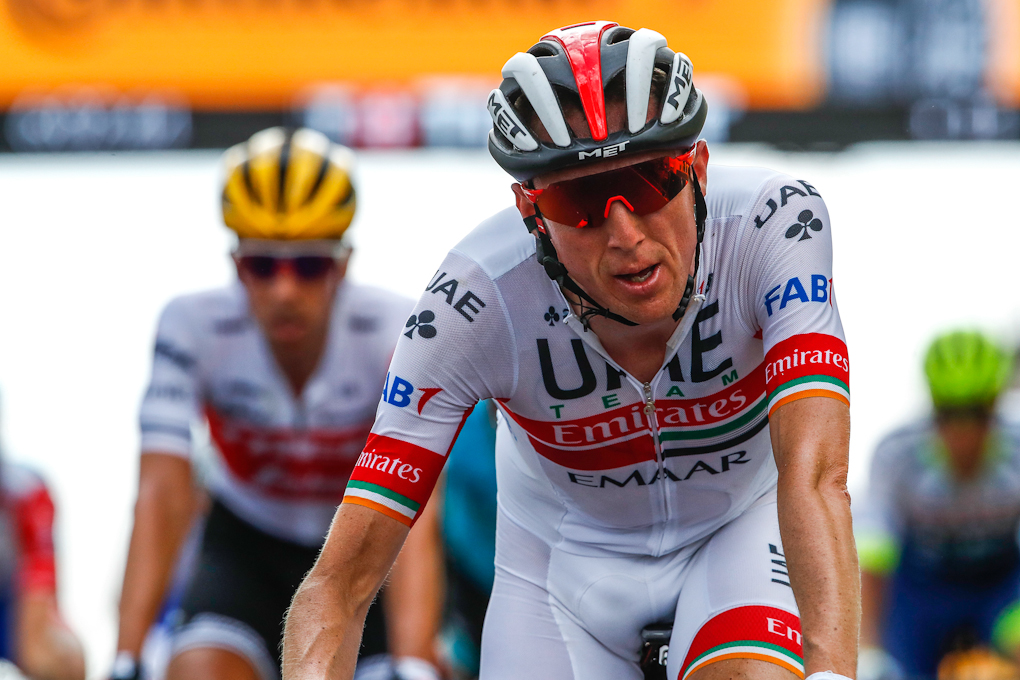
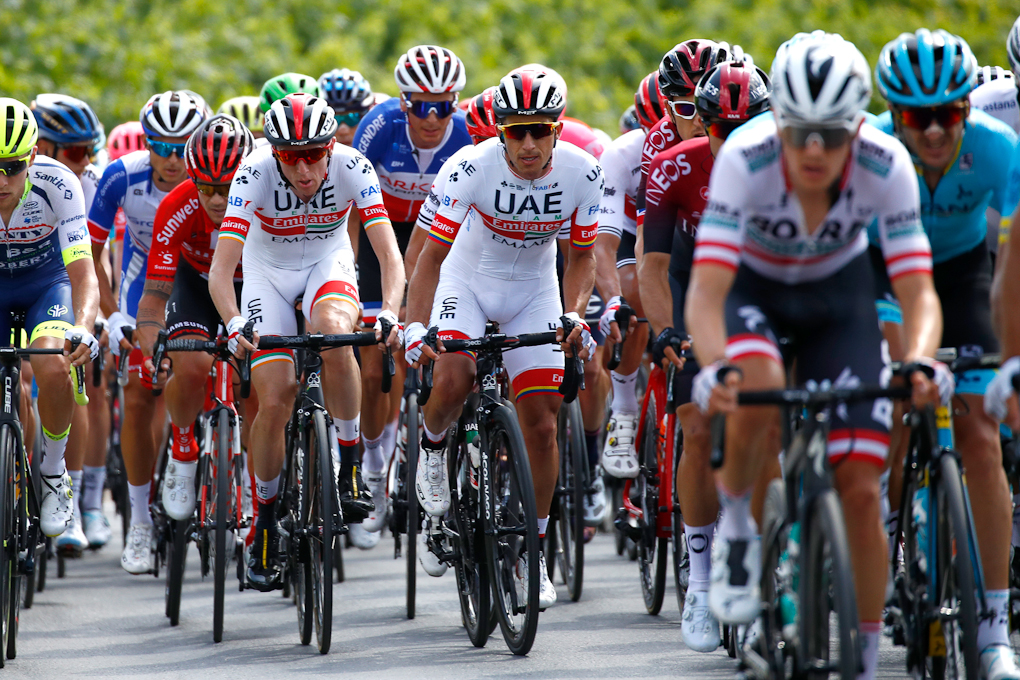
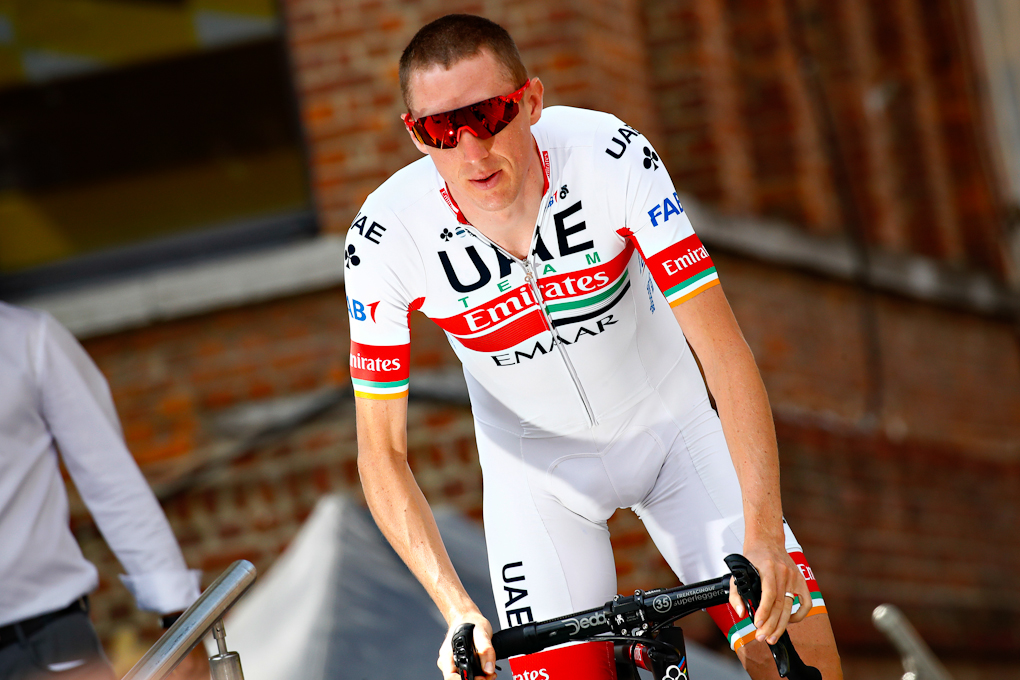
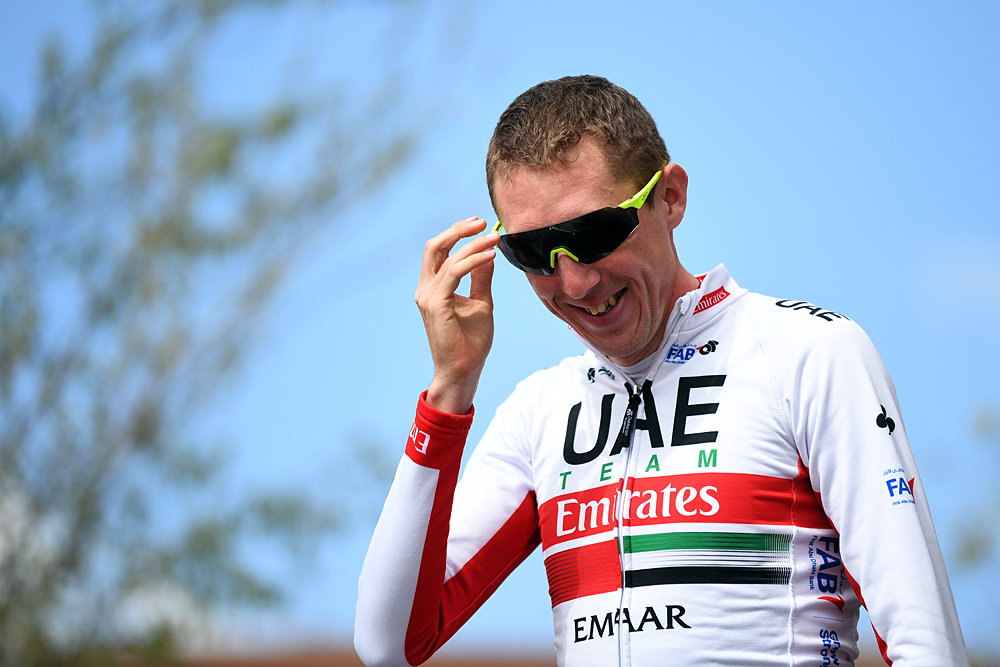
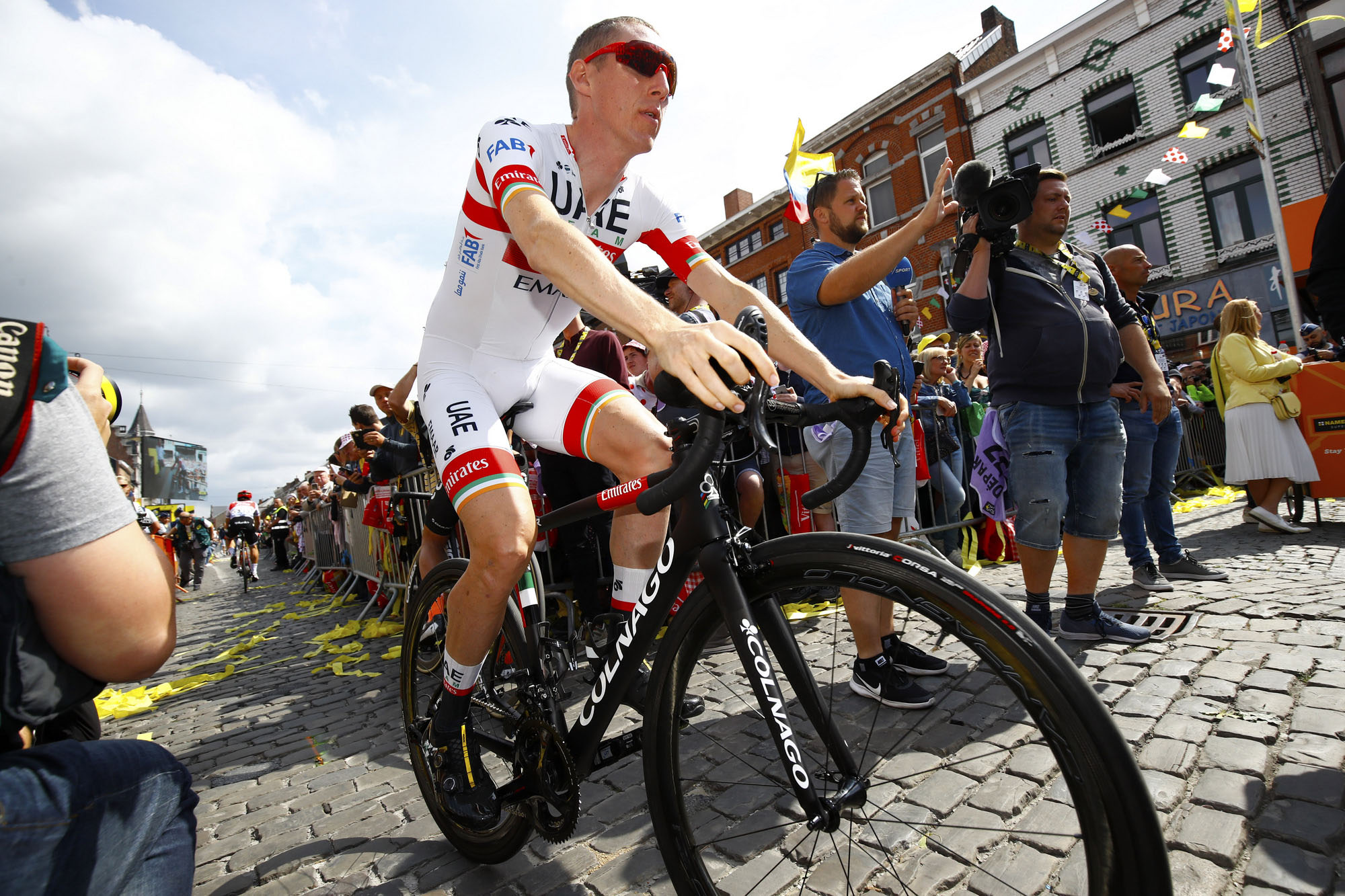
For Dan Martin (UAE Team Emirates), the 2019 Tour de France is a two-part story. The first half of the race was largely about keeping his name out of dispatches, and the Irishman has quietly passed the midpoint of the race without accident or incident. Over the next ten days, he will hope his profile rises in tandem with the topography of the race.
Martin rode wisely and strongly to make the front group when the peloton split into echelons on the road to Albi on stage 10, and as he reaches the friendly confines of the Pyrenees, he finds himself in ninth place overall, 2:09 behind his former teammate Julian Alaphilippe (Deceuninck-QuickStep) and just 57 seconds down on defending champion Geraint Thomas (Team Ineos).
"We’re there or thereabouts still. We’re just hiding, just keeping the powder dry and staying out of everybody’s mind," Martin said on Wednesday. "I’ve been hiding a bit in the peloton."
To this point, Martin has been reliant, at least in part, on the help of others and subject to the caprices of the Tour’s opening phase, where an ill-timed puncture or poorly-taken roundabout can provoke the loss of minutes. From here, for better or for ill, Martin’s position on the Tour should be decided primarily by the strength in his legs.
"In the mountains you have a lot more control over the result," Martin suggested.
"It’s about the level of performance. It’s the legs that do the talking rather than positioning and teamwork, so it’s a lot more about the energy you’ve saved over this first week and using it in the right way on those final climbs. But it also comes down to knowing the roads and experience of the climbs, especially in the Pyrenees."
Pyrenean pedigree
Martin’s history with the Pyrenees is a longstanding one. As a 16-year-old on a family holiday, he rode the Tourmalet, Aspin and Peyresourde in the same day in the company of his father Neil to watch a stage of the Tour. In 2008, his maiden season as a professional, he won the Route du Sud, and five years later he claimed his first Tour de France stage win when he outsprinted Jakob Fuglsang in Bagnères-de-Bigorre after going clear on the Hourquette d’Ancizan.
Get The Leadout Newsletter
The latest race content, interviews, features, reviews and expert buying guides, direct to your inbox!
The Col du Peyresourde and Hourquette d’Ancizan feature ahead of the drop to Bagnères-de-Bigorre on Thursday’s stage 12, though the flat terrain in the opening part of the day means that a larger front group might contest the finish this time around. With the Pau time trial and summit finishes on the Tourmalet and Prat d’Albis to come in the following three days, the opening Pyrenean stage has been slightly overlooked, but Martin warned that it might yet spark an important selection.
"It is a long way from the finish on the descent, so it depends what way the wind is," Martin pointed out.
"As long as you’re on the wheel at the top of the climb [Hourquette d’Ancizan], you should be safe home. These downhill finishes always look less selective on paper, but time gaps can be much bigger than on a mountaintop finish in the end, if you don’t get the draft of a group on the way to the finish."
Martin was on the wrong side of that equation on the road to Serre Chevalier two years ago, when his minor deficit to the small yellow jersey group at the summit of the Col du Galibier ballooned out to half a minute by the finish.
"It’s definitely a day where you can’t really relax," he warned.
The following day’s time trial in Pau, on the other hand, will almost certainly provoke significant gaps in the general classification and set the tenor for the remainder of the Tour. It is the lone individual time trial in the race, and the last occasion where men like Martin will find themselves on the defensive.
From Pau to Paris, the race will be won and lost at altitude, though managing the transition from pushing a heavy time trial gear on Friday to scaling the Tourmalet a day later will prove a delicate challenge.
"We haven’t done that in a few years, so it’s going to be interesting. The legs always feel a bit strange after a TT because it’s a very intense effort over a short period," Martin said.
"It’s a long day, too. I don’t think people realise because they only see the 40 or 45 minutes out on a bike but it’s a long, long day out of the hotel with recon, warming up, cooling down, everything. It destructs the rhythm of the race, that’s what makes the next stage so difficult."
A year ago, Martin was fêted in Paris as the Tour’s most combative rider for his own spirited attempts to disrupt the rhythm of a race that was controlled to the nth degree by Team Sky. This time out, he will hope that aggression can carry him to greater heights.

Barry Ryan was Head of Features at Cyclingnews. He has covered professional cycling since 2010, reporting from the Tour de France, Giro d’Italia and events from Argentina to Japan. His writing has appeared in The Independent, Procycling and Cycling Plus. He is the author of The Ascent: Sean Kelly, Stephen Roche and the Rise of Irish Cycling’s Golden Generation, published by Gill Books.